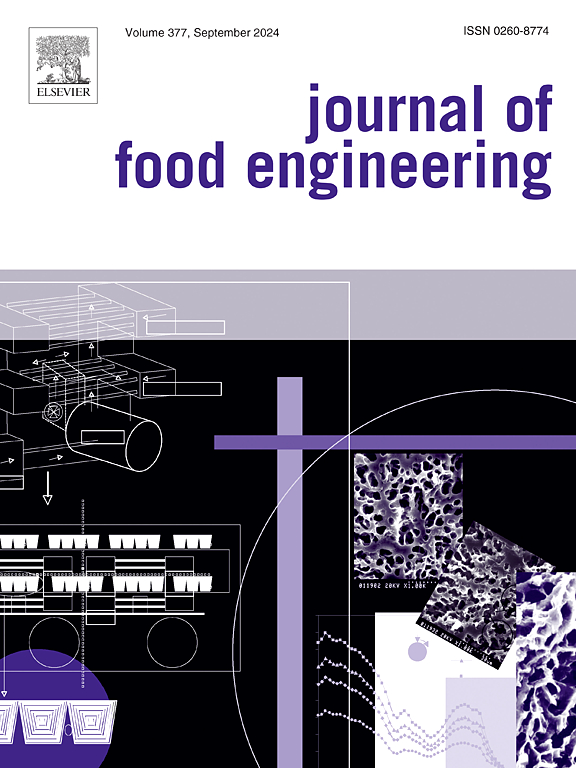壳聚糖涂层对 CPH 脂质体特性和稳定性的影响
IF 5.3
2区 农林科学
Q1 ENGINEERING, CHEMICAL
引用次数: 0
摘要
ACE 抑制肽在胃肠道消化过程中的不稳定性限制了其在食品工业中的应用。将多肽封装在脂质体中是提高其生物活性和稳定性的有效方法。本研究评估了壳聚糖包衣对负载了从山茶籽饼(CPH)中提取的 ACE 抑制肽的脂质体的理化特性、稳定性和体外释放的影响。负载了 CPH 的脂质体(CPH-Lip)和负载了壳聚糖的 CPH-Lip 脂质体(CS-CPH-Lip)都具有球形和核壳结构。与其他样品相比,包覆了 0.5% 壳聚糖的 CPH-Lip (CS-CPH-Lip-0.5%)的包囊效率(EE)最高,达到 82.67%。此外,CS-CPH-Lip-0.5%具有更好的储存稳定性和热稳定性,这归功于CPH-Lip和壳聚糖之间的静电作用。CPH-Lip经壳聚糖包衣后具有可控的释放性,经胃肠道消化后仍能保持52.76%的ACE抑制活性。因此,CS包被脂质体是一种有效递送生物活性肽的可行方法。本文章由计算机程序翻译,如有差异,请以英文原文为准。
Effect of chitosan coating on the characterization and stability of the CPH liposomes
The instability of ACE inhibitory peptides during gastrointestinal digestion limits the application of the peptides in the food industry. Encapsulation of the peptides in liposomes can be an effective method for enhancing their biological activities and stabilities. In this study, the effects of chitosan coating on the physicochemical features, stability, and in vitro release of liposomes loaded with ACE inhibitory peptides obtained from camellia seed cake (CPH) were evaluated. Both liposomes loaded with CPH (CPH-Lip) and CPH-Lip coated with chitosan (CS-CPH-Lip) had spherical and core-shell structures. The CPH-Lip coated with 0.5% chitosan (CS-CPH-Lip-0.5%) had the highest encapsulation efficiency (EE) of 82.67% compared with other samples. Moreover, the CS-CPH-Lip-0.5% had improved storage stability and thermal stability, which was owing to the electrostatic interaction between CPH-Lip and chitosan. The CPH-Lip showed a controllable release after chitosan coating, and maintained 52.76% of the ACE inhibitory activity after gastrointestinal digestion. Thus, CS-coated liposome is a promising approach for the effective delivery of bioactive peptides.
求助全文
通过发布文献求助,成功后即可免费获取论文全文。
去求助
来源期刊

Journal of Food Engineering
工程技术-工程:化工
CiteScore
11.80
自引率
5.50%
发文量
275
审稿时长
24 days
期刊介绍:
The journal publishes original research and review papers on any subject at the interface between food and engineering, particularly those of relevance to industry, including:
Engineering properties of foods, food physics and physical chemistry; processing, measurement, control, packaging, storage and distribution; engineering aspects of the design and production of novel foods and of food service and catering; design and operation of food processes, plant and equipment; economics of food engineering, including the economics of alternative processes.
Accounts of food engineering achievements are of particular value.
 求助内容:
求助内容: 应助结果提醒方式:
应助结果提醒方式:


